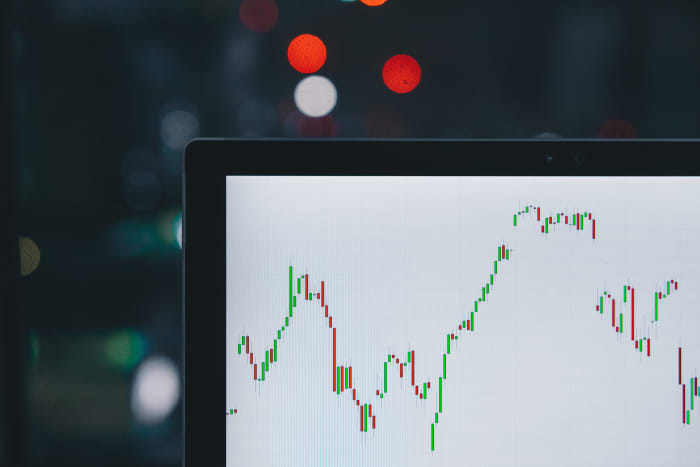Types and Functions of Economic Systems
What Are Economic Systems?
Due to the problem of scarcity, every economic system (be it capitalist, socialist, or any other economic system) needs to function to satisfy societal needs. Given such scarce resources, it is believed that choices must be made regarding:
- What to produce.
- How much of each commodity to produce.
- How to produce it.
- For whom to produce it for.
Every society sets up some means for answering its fundamental economic questions. This entity is called the economic system.
Basically, an economic system refers to the means by which decisions involving economic variables are made in a society. In this light, a society’s economic system determines how the society answers its fundamental economic questions of, again, what to produce, how the output is to be produced, who is to get this output, and how future growth will be facilitated, if at all.
The essential differences between economic systems lie in the extent to which economic decisions are made by individuals as opposed to governmental bodies and in whether the means of production are privately or publicly owned.
Types of Economic Systems
There are different types of economic systems. These include the traditional, the command/socialist economy, pure capitalism, and mixed economic systems.
The Traditional Economy
This is the type of economy in which the organization of production and distribution is frequently governed by tribal rules or customs. This type existed mostly in the early stages of development, where the economy is strongly linked to the social structure of the community, and people perform economic tasks for non-economic reasons.
In the traditional economy, economic matters are largely determined by social or religious customs and traditions. For example, women may plow fields because that is their customary role and not because they are good at doing so. Traditional economic systems are often found in less developed countries, where they may be a hindrance to economic progress.
The Command Economy
In the command economy, an authoritarian central government calls the tune. It operates on instruction from those in power. In this type of economy, decisions in connection with the functions of an economic system are taken on a collective or group basis. There is collective ownership of factors of production. The group that owns the factors of production and makes decisions may be some government body.
A command economy is a centrally planned economy. There is typically very little freedom of choice. The occupation of workers, the quantities of which type of commodity to be produced, and the distribution of income are determined by the central planners, plus making arrangements for future economic growth. Cuba, North Korea, Russia, and Iran are examples of economies that are closest to perfect command economies.
Pure Capitalism
Pure capitalism is an economic system based on private ownership and the freedom of individuals to conduct their economic affairs without interference from government bodies or other groups. Capitalist economic systems are characterized by a great deal of freedom of choice exercised by consumers and business firms in the market for commodities and resources.
The capitalist economy is also known as the free exchange economy or market economy. The essence of pure capitalism is freedom. There is freedom to own property, freedom to buy and sell, and freedom from government interference in the economic aspect of each individual’s life. Capitalism is best characterized by the economy of the United States, even though it is not a purely capitalist economy.
Mixed Economy
Many economies are best described as mixtures of capitalistic and command systems. The United States and other countries where markets are heavily relied on to allocate resources and distribute output are known as mixed capitalistic systems.
The characteristics of the free enterprise system are manifested in most of its economic activities. However, some of the economic decisions of the mixed economy are taken on a collective basis, and some of the productive resources or goods are owned by a governmental body. In the mixed capitalistic economic system, both government and private decisions are important.
Functions of an Economic System
Economic systems everywhere may perform similar functions. These functions may be traditional or non-traditional. As mentioned, the traditional functions include the following:
- What to produce.
- How to produce, i.e., what method of factor combination to adopt in order to maximize the use of the resources.
- For whom to produce.
- How to distribute the goods and services produced.
Economists have realized the importance of economic growth and the attainment of full employment if the system must achieve the best use of its scarce resources. Attainments of full employment and high economic growth have become non-traditional functions.
Traditional Functions of Every Economic System
The traditional functions of every economic system include the following:
- What not to produce: In deciding on what goods to produce, an economic system also decides what not to produce. For example, if the system wants to provide roads and recreational facilities, it may have problems since it may lack enough resources to do so at the same time. It will be necessary that it chooses between the two. It may, for instance, have to choose roads. An economic system can consider a wider variety of goods than the other, which is poorly endowed.
- What method to use: Economic systems also function to decide on the particular technique to be used in production. Here, the economic system decides what method of factor combination to employ in order to maximize the use of scarce resources by minimizing cost and increasing productivity. The decision may involve whether to employ labor-intensive or capital-intensive methods of production. In a free exchange economy, its choice will depend on relative factor endowment and factor prices. In developing countries, for instance, labor is more abundant and cheap. A labor-intensive method may be preferred.
- For whom to produce: Another problem the economic system is faced with is for whom to produce. To get maximum use from the scarce resources, the commodity must be produced in an area where it would be demanded and where costs will be minimized. The production unit may be situated near the source of raw material or the market center, depending on the nature of the product.
Non-Traditional Functions of Every Economic System
- Enduring economic growth: Economic systems must ensure economic growth. Owing to scarcity of resources, the society must know whether its capacity to produce goods and services is expanding or decreasing. Some major ways to promote economic growth include ensuring an adequate rate of growth of per capita income, improvement in technology through the adoption of superior techniques of production, and better and more extensive education and training of the labor force and others.
- Ensuring full employment: Society must also ensure full employment. It is the task of economic systems to ensure that resources are not idle or unemployed since resources are scarce. In the market economy, full employment is achieved by stimulating demand.
Suggested Reading
- Reciprocity, Redistribution, and Market Exchange
Let's explore the three "modes" of economics. - Functions of Money in the Modern Economic System
The modern economy cannot work without money. Money is a medium of exchange, a measure of value, a store of value, and a standard of deferred payments.
This content is accurate and true to the best of the author’s knowledge and is not meant to substitute for formal and individualized advice from a qualified professional.
Comments
Precious chidinma on March 09, 2020:
So happy to know all this
Mahmood Salih on February 16, 2020:
Economic is the scienc of wealth
mohammed on April 15, 2019:
Economies is a fundamental human right to distrobution and commondity goods services.
hiimtimmy on September 07, 2018:
yes it does
noneofyourbuisness on September 06, 2018:
this makes no since
minuslinusswineus on February 15, 2018:
Hey guys, Minus Linus Swine US is here to comment about this article,
The information is correct and useful but I would like to add a bit of my personal findings.
Scarcity plays a major role in how economies answer the four fundamental questions of economy. There aren't unlimited resources so societies must think about what they have and how they will use it to do what they need. Scarcity is the basis of all economic decisions so with that being said when deciding how much of something to produce and how to produce it there are limits.
Sincerely, Minus Linus Swine US
safiyanu on August 12, 2015:
nice to known this sit



